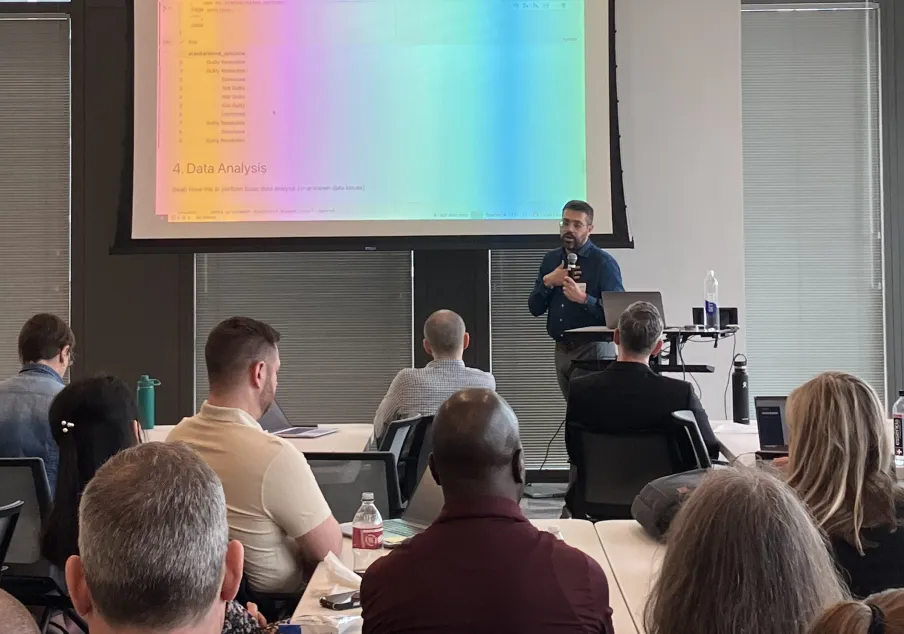Court Statistics Project
Transforming data into action with the only annual comparable overview of state court caseload data.

Insights that power decision making
The Court Statistics Project (CSP) is a collaborative initiative of NCSC and the Conference of State Court Administrators (COSCA). CSP collects, analyzes, and publishes caseload data from state courts across the country, offering insights that empower court leaders to make data-driven decisions.
For over 50 years, CSP has served as the primary resource for understanding trends in court operations, helping stakeholders allocate resources, implement policies, and improve public trust in the justice system.
Why CSP matters
We transform raw data into actionable insights, empowering courts and communities with knowledge about more than 95% of all cases filed in the U.S.
Solving challenges. Improving justice.
CSP identifies factors that impact caseload trends, and supports equitable resource allocation, to help courts improve efficiency and effectively serve all populations.
Shaping policy and innovation
Policymakers and court leaders turn to CSP data to address societal issues, adopt proven practices, and implement innovative solutions like hybrid hearings and diversion programs.
Building trust and transparency
CSP promotes public accountability by making court data accessible, strengthening trust between courts and the communities they serve.
Explore more
Caseload data
One-of-a-kind national caseload data to help courts anticipate and adapt to change.
State court jurisdictions
Discover detailed comparative information about how state trial and appellate courts are structured.
Data governance
Guidance for empowering your court to make data more accessible, understandable, and useful.
State court governance
Compare how state judiciaries and trial and appellate courts are governed in this comprehensive overview.
Put our skills to work
Want to talk to one of our experts in court administration? Contact us to learn how we can help your court.

Dive into data governance
Data governance is the framework courts use to reach and communicate organizational decisions around data, ensure that business activities and data management are synchronized, and develop and document long-and short-term strategies around the collection, use, and disposal of data. It encompasses the people, court processes, and procedures that ensure that data are fit for managing cases, planning, and budgeting. Governance is about creating a culture around data creation and use, including how data rules are created and enforced and how disputes are resolved.









